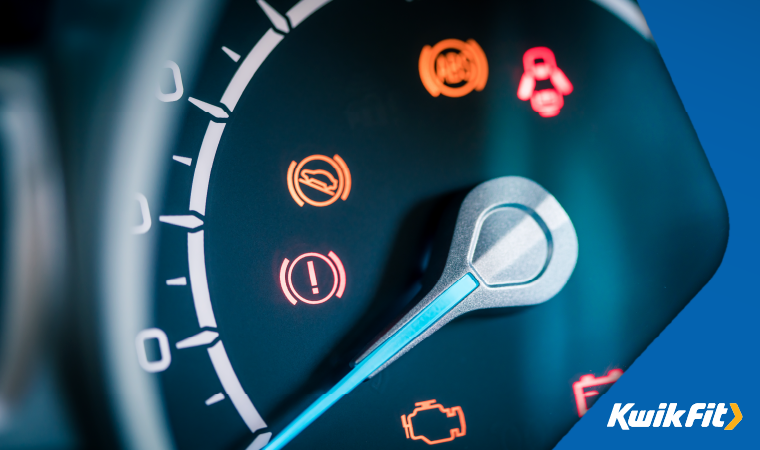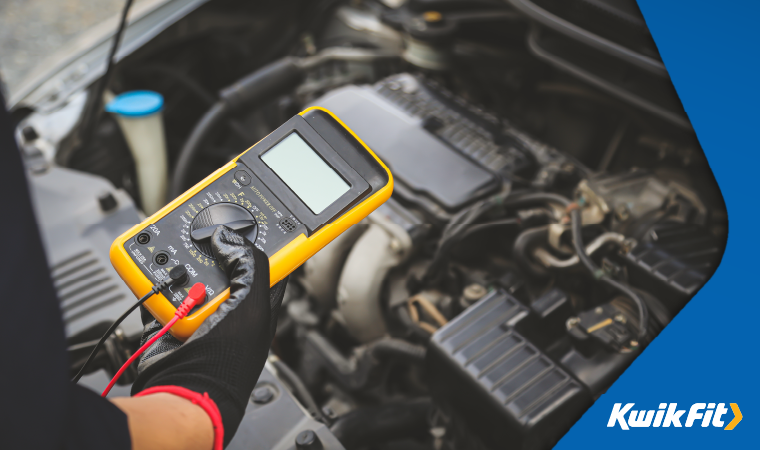What You Need to Know About Your Car's Alternator
Jessica Bird | Wednesday 21st May 2025 8:00am

If you’ve owned a car for any length of time – especially an older car – you’ll likely have heard something or other about its alternator. They’re not the part most prone to wear, but they can be problematic when they start to go because they tend to become less effective, rather than suddenly stop working. If your exhaust breaks, you often know about it pretty quickly; however, if your alternator needs replacing, then you might get signs you wouldn’t necessarily expect.
So, what are alternators exactly, what do they do, and what do you need to know in order to keep them happy for as long as possible?
What is an alternator?
The alternator is a component in combustion engine vehicles that acts like an electricity generator, designed to recharge your car’s 12v battery and power anything that needs electricity while driving. This means that without your alternator you’ll be stuck without lights, heating, cooling, powersteering, or even the beloved radio.
Perhaps more surprisingly, if your alternator is on the way out then you may find that your car won’t start at all.
How does an alternator work?
The car’s combustion engine, when running, provides a great deal of rotational power. This power is used to actually move the car but a certain amount of it is transferred to the alternator using a belt system (one of a few belt-driven systems). A simplified version of how this then works is that the belt turns a magnetic core within a coil housing, in much the same way that the motor of an electric car works. The magnetic field of the core then creates an electric current in the wires, which is sent to the car’s components - as well as to the battery.
Why do you need an alternator?
Originally, engines had to be hand-cranked in order to start up, but this was actually quite dangerous if an engine misfired and you were in the way. Starter motors were developed to provide the starting power that the engine needs to get going.
The problem is that, by virtue of having to be quite small, starter motors need to be able to output a lot of force very quickly to get the engine running – so the battery exists primarily to provide this power, and the alternator exists to recharge the battery, so that you’re not left stranded.
In other words, a huge portion of the battery’s energy gets used on startup and is then recharged by the alternator. This is why stopping and starting in short succession – especially on older vehicles without stop-start technology – can quickly drain the battery completely.

The main signs of alternator problems
Unless there’s been some dramatic damage, alternators tend to not give up all at once, so you’ll usually have some warning when they’re on their way out. They tend to fail in one of two ways: either electrically or mechanically (though both are related). Here are the main signs that your alternator needs attention:
Dimming or flickering lights
As the alternator stops being able to provide adequate power, you might notice that your lights are dimmer than usual, or that they begin to flicker. This is often especially noticeable while idling, or when you have multiple electrical devices plugged in.
Battery dashboard warning light
This is usually the most helpful indicator: your dashboard warning light will turn on if there’s a problem with your battery – but it’ll also turn on if there’s a problem with anything in your charging system. Some car models also have a separate “ALT” light that indicates a problem specifically with the alternator.
Weak or dead battery
While this begins to be indicated by the dimming or flickering lights, you’ll notice the later stages of a failing alternator if you spot that your battery frequently goes flat, or your car often struggles to start. This could also indicate a failing battery, so it’s wise to go get your alternator and battery checked by an expert.
Different electrical issues
Because so many components in your car rely on the power supplied by the battery and alternator, you may notice other electrical problems if your alternator is starting to fail. Things like electric windows, radio, air conditioning, and other components may begin to work intermittently, or stop working altogether.
Burning smells or unusual grinding noises
By the time you’re able to hear grinding noises or burning smells, you’ll almost always have noticed other problems with your car’s electricals – but this is usually the last warning. Burning smells or grinding noises can indicate broken bearings or other mechanical failings in the alternator, and these will need to be inspected by an expert immediately.
The worst-case scenario is that your car catches on fire through an excess of friction heat, but the most likely scenario of driving with a severely damaged alternator is that you’re left stranded somewhere inconvenient if it entirely gives out.

How to be sure that your alternator needs attention
A simple test is to use a multimeter on your car battery terminals. When turned off, you should see a reading of between 12v-13v – when you start the car, this reading should jump to somewhere around 14.5v, which indicates that the alternator has kicked in and is providing enough power to begin recharging the battery.
If you’re getting a reading in the low 13v area then there’s a good chance that the alternator isn’t providing enough power. This is due to the fact that you need to be supplying a voltage that’s higher than the resting voltage of a battery in order to charge that battery. If you’re lucky, however, an odd voltage reading could just be an issue with the wiring or with the connections – so could be a very simple fix.
Concerned about your car’s alternator?
If you have concerns about your car’s electronics, you’re unsure whether your battery needs to be replaced or whether it’s your alternator causing problems, trust the experts at your local Kwik Fit centre to quickly diagnose any problems and have you comfortably back on the road in no time.
Any facts, figures and prices shown in our blog articles are correct at time of publication.
Featured Articles
Is it Illegal to Drive With One Headlight?
Saturday 19th July 2025
Wondering if it’s illegal to drive with one headlight? Learn about the safety risks and penalties of illegal blown bulbs and why you should fix them promptly.
Air Con in EVs & Hybrids: Experts Answer Your Questions
Monday 30th June 2025
Does air con drain EV batteries? Can you use the air con while charging an electric car? Find out the answers to these questions & more from Kwik Fit’s experts.
Why Is Your Car Making a Noise? Fixes & Tips
Friday 13th June 2025
When your car starts making unexpected noises, it can certainly be quite disconcerting; it may be nothing to worry about, but here’s what you need to know.









